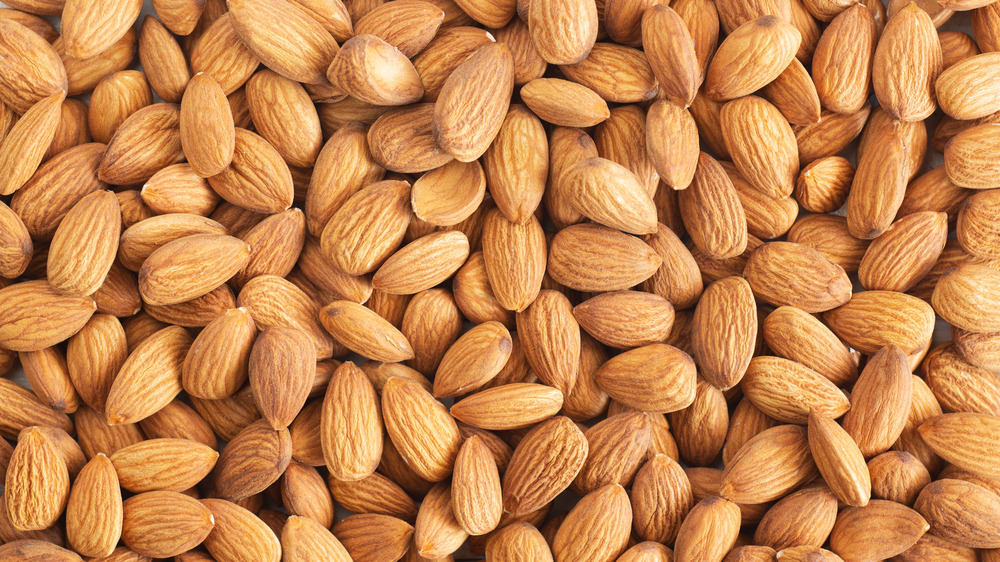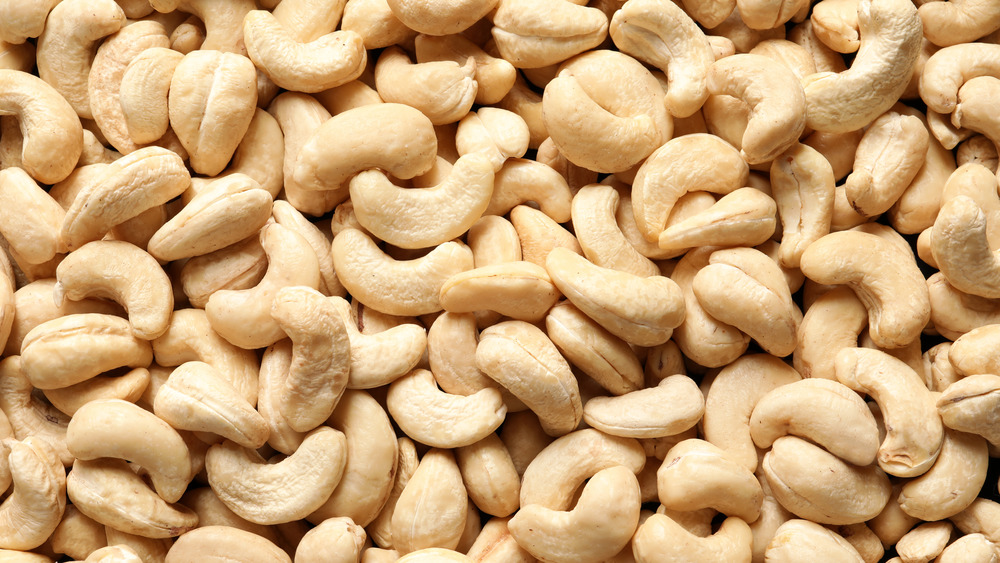Cashews Vs Almonds: Is One Healthier?
There's no doubt that nuts are one of the healthier snack options you can choose to curb any between-meal hunger pangs. Not only are they good sources of fiber and protein, but studies have shown adding nuts to your diet may reduce your risk of heart disease (via Healthline).
With so many nut options, you may be wondering if there is a healthier choice. This article will crack through the differences and similarities between cashews and almonds to determine which nut has better nutritional benefits.
All nuts are known for having a high fat content, but almonds have a higher unsaturated fat content and total fat content, with 15 grams in one ounce of almonds, as compared to the 13 grams in cashews (via Livestrong). Cashews also contain more than three times the saturated fats that almonds contain, leading experts to recommend eating almonds frequently and cashews only occasionally.
How cashews and almonds can be healthy ... or unhealthy
Both cashews and almonds also contain numerous vitamins and minerals. Almonds have higher levels of vitamin E and calcium, while cashews have more zinc and vitamin K. Studies show that both almonds and cashews can improve blood pressure levels, while almonds are a popular addition to a weight loss diet, with their positive impact on gut microbiota development.
So which nut wins the debate? It depends on your specific dietary requirements, but almonds typically top the healthy nut list over cashews. It is best to consult with a nutritional professional on any questions you have about your fiber or protein intake with nuts.
You should also watch what flavorings or preparations you choose for both cashews and almonds. Opt for unsalted over salted nuts to keep sodium levels at bay, and avoid candied preparations to eliminate extra sugars. You should also be careful of processed nut butter products, as those can hide lots of sodium and sugars in their deliciousness.


